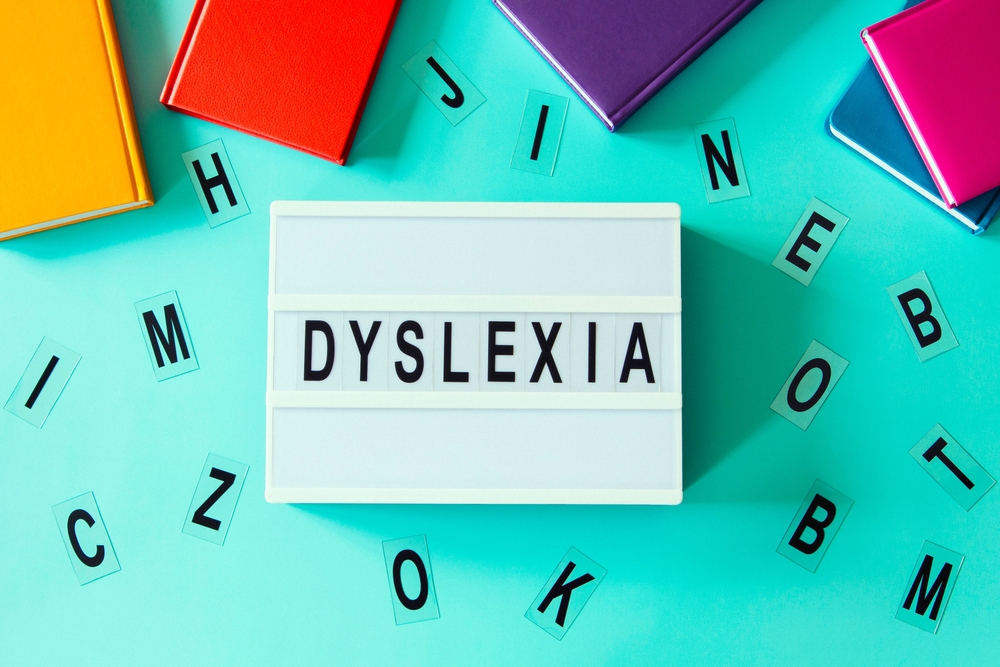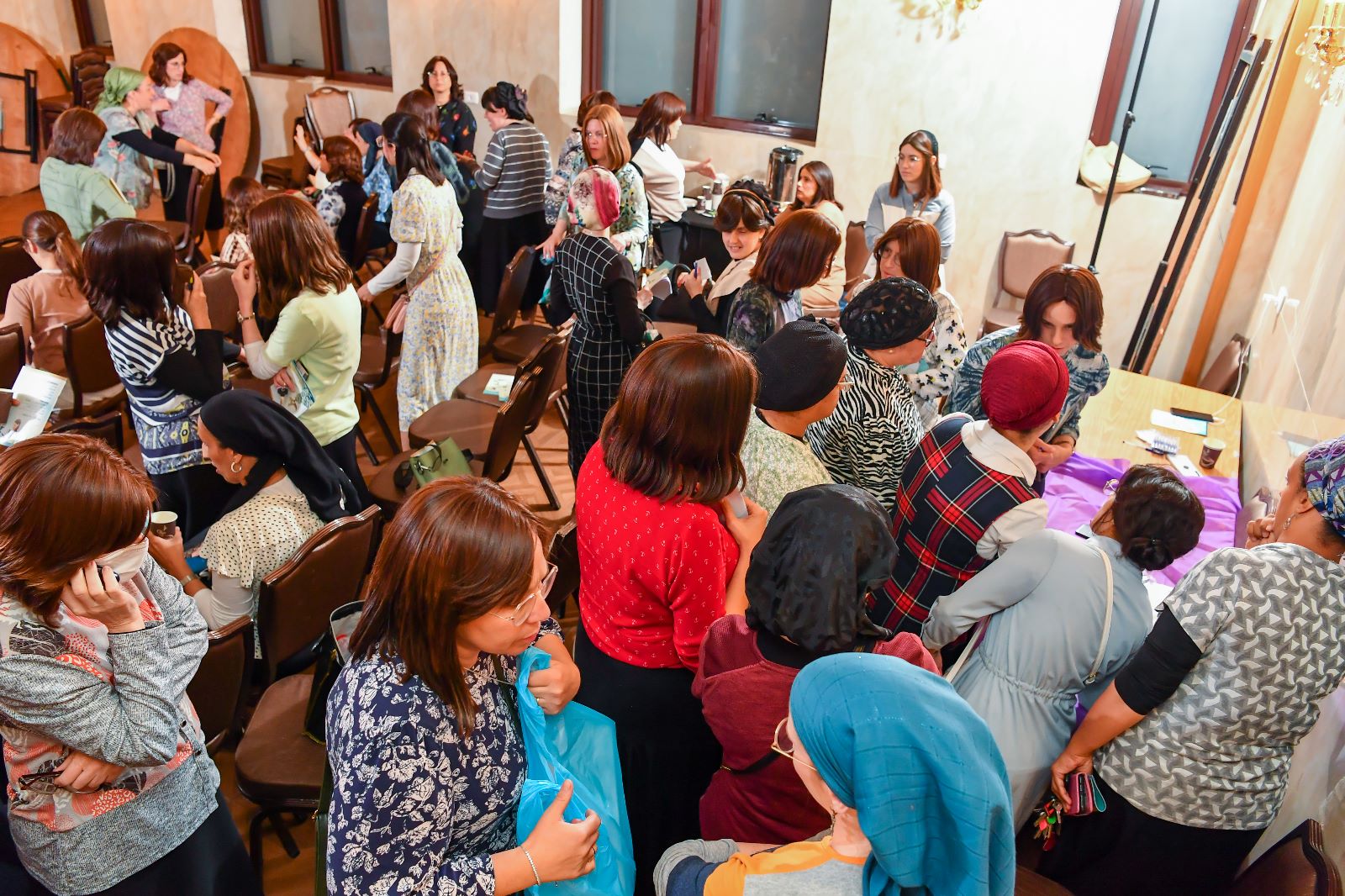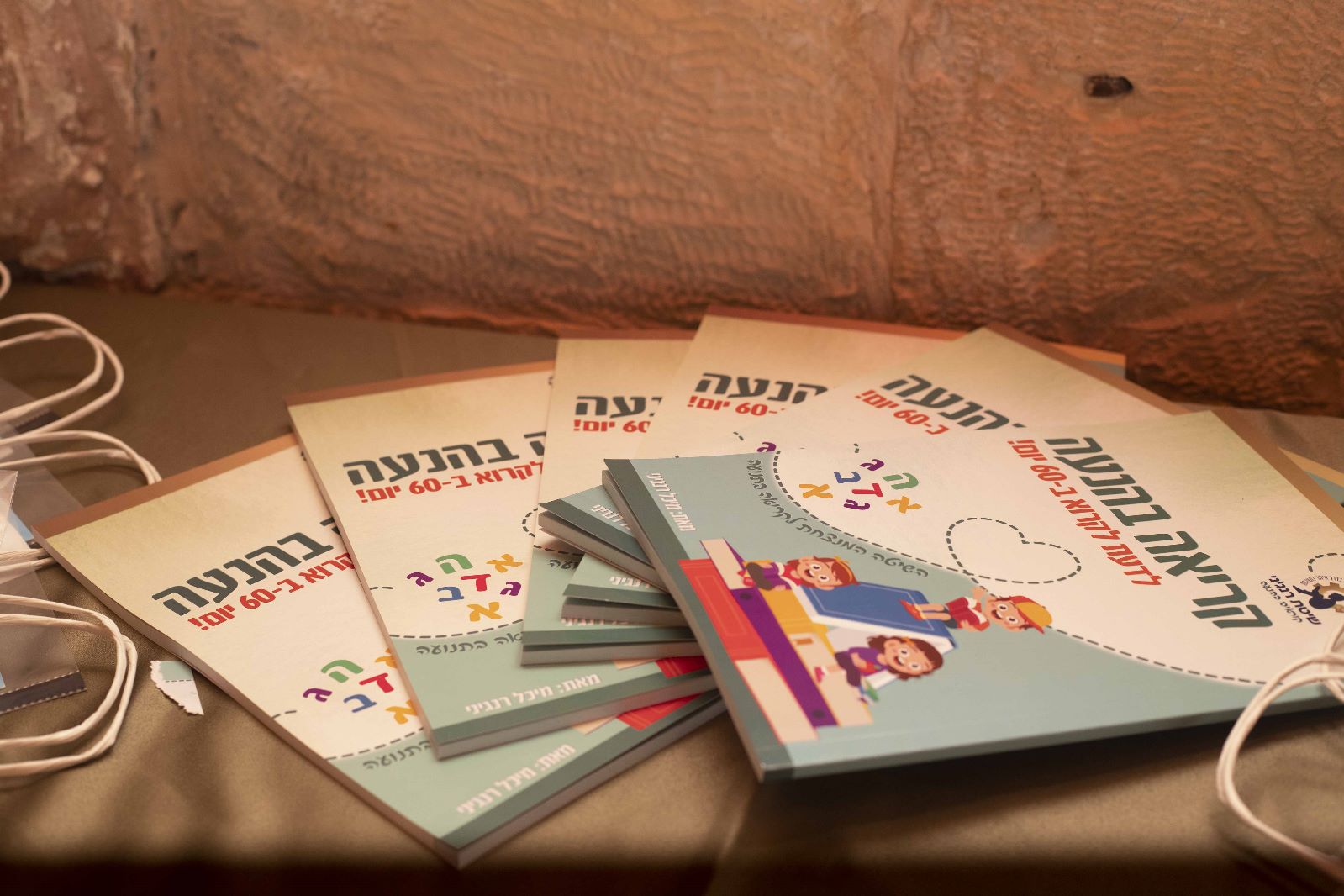"I Decided to Help Children Who Struggle with Reading in 60 Days"
Children once labeled as dyslexic, older students who never acquired significant reading skills, and those moved to special education frameworks due to reading difficulties have found help through Michal Rangini's unique teaching method. She shares her insights.
 In the circle: Michal Rangini (background photo: shutterstock)
In the circle: Michal Rangini (background photo: shutterstock)When Michal Rangini sends me videos showing parents whose children, after years of struggling with reading, have started reading fluently, I find myself almost mesmerized, feeling the growing excitement. As a mother, I understand how crucial reading ability is for success in academics, social settings, and various life areas.
In Michal's videos, parents of children even in fifth and sixth grade talk about their children's inability to reach significant reading levels. One parent mentions being advised to move his daughter to a smaller class due solely to her reading difficulties; another shares the frustration and failures his child experienced, always trying to hide his reading impairment. Some even believed their child was dyslexic, and diagnoses supported this.
These parents were surprised when introduced to Michal's innovative and distinct method, which, despite sounding unconventional, has proven very effective.
Struggling to Read
Michal's deep desire to help children stems from a significant need in the field and her own frustration. "I've been working in special education for over 16 years," Michal says, "and I specialized in reading. It pained me to see that despite various methods and great efforts, many students struggle to achieve meaningful reading even in higher grades. I'm not referring to those who cannot read at all but those whose reading is a struggle, not automatic, and often lacks understanding."
 (Photo: shutterstock)
(Photo: shutterstock)Michal emphasizes that although she comes from special education, the most painful statistics appear in regular education. "Studies show that in recent years Israeli children's reading abilities have regressed by about twenty years, affecting all age groups, particularly fourth and fifth graders—often victims of the COVID period when they were in first or second grade."
While children's abilities are regressing, Michal highlights that today's parents are more aware of and seek responses to their children's difficulties. "Kids who struggle often join integrated classes or receive remedial teaching. However, statistically, this doesn’t significantly help them. Ultimately, around 40% of children in regular education struggle with reading, and this rises to 60% in special education. Sometimes, children end up in special education due to reading problems. I speak with first-grade teachers, and it's alarming. They report that in past years, most of their students left first grade knowing how to read, with only one or two struggling, but now every year, more than ten students don't read significantly or automatically."
"These children aren’t neglected," Michal emphasizes; "Parents and teachers invest a lot, which leads to frustration because they do everything possible with repetition and practice, yet there's no reading progress."
Do you have an explanation for these tough statistics?
"There could be several reasons, but I don't focus on them because they are less important to me. Meeting these children for 16 years has made me aware of their distress, and my sole focus is finding a way to teach them to read easily, simply, and quickly."
Michal explains that the idea of 'minimum time' is crucial for reading. "Just think, when a teacher offers to help a student but doesn’t know when the gap will close, the student can attend lessons for two or three years without catching up, as their class progresses, creating more gaps."
Nice to Meet: The Movement Method
What do you offer that other methods don’t have?
"There really is no shortage of reading methods. Any parent wanting to help can buy booklets and feel they are providing an answer. But when I developed my method, I sought something impactful with a short time frame.
"Most children who come to us with reading difficulties aren't entirely unable to read. When asked how to pronounce a letter with a particular vowel, they know the answer, can join vowels and syllables into words and sentences. The knowledge exists, but something prevents automatic action. It turned out many such cases involve retrieval issues, common among children with attention and concentration problems but not exclusive to them. It’s not about forgetting or memory but difficulty retrieving existing knowledge.

"I often share the 'blue shirt allegory': I bought a blue shirt and placed it in my wardrobe, but I can’t find it the next day. Does this mean I don’t have a blue shirt? Certainly not. It means there’s a big mess in my wardrobe. To overcome the mess, some kids might open the wardrobe and choose a different shirt, compromising on color. These are the children who guess-read, leading to a lack of enjoyment and understanding. Conversely, those who insist on precision will turn the entire wardrobe over to find that blue shirt. These kids invest a lot of energy in decoding reading. They eventually succeed in reading accurately but without enjoyment as the shirt they pull from the wardrobe is rumpled. The great effort undermines reading pleasure.
"With my method, I help children reorganize their mental ‘wardrobe,’ making it easier to locate items and retrieve them."
And how do you organize the wardrobe?
"This is the question of questions. Retrieval issues are significant challenges that don't resolve themselves. It's likely this will remain a weak point for these kids all their lives, but for reading, there are ways to bypass it. While regular reading methods rely on auditory-visual channels, weak for these kids, we try to find a workaround by teaching reading through movement."
Michal explains her innovative approach: "I linked each Hebrew vowel, such as Kamatz, Chirik, etc., with a hand gesture. This movement accompanies learning from reading single words to complete sentences and stories, turning reading into a kind of sign language where the child reads and gestures simultaneously. The concept is that body movements engrave knowledge in the brain long-term, easily retrievable, addressing the retrieval difficulties we discussed."
But doesn’t this slow reading down when a child marks movements while reading?
"True, at first reading will be slower, but this slowness serves the learning purpose, similar to teaching a child to ride a bike with training wheels before removing them. Research shows that it takes about 60 days to engrave movements into the brain. Post this period, we expect the child to move beyond the physical motions, retaining the reading ability automatically. From our experience, most children show significant progress after 60 days, and 95% succeed in reading fluently after 90 days."

Michal highlights another differentiator for her method: the 'time principle.' "When I guide teachers and parents, I stress not to teach a child for more than ten minutes a day," she elaborates. "Research shows that children absorb most effectively in the first ten minutes of a lesson. Hence, it’s inefficient to take a child for remedial lessons twice a week, each lasting 45 minutes. The energy of teachers and children is wasted. Our method emphasizes just ten minutes a day."
"Glad to Be a Messenger"
Michal's method ("Rangini Method"), gaining significant traction, already aids thousands of students nationwide with a 95% success rate, thanks to Heavenly help. In recent years, it's become part of the curriculum in some schools, showing high success rates.
"Stories of children achieving reading skills thanks to my method reach me daily, and it's exhilarating each time," Michal says honestly, "as it’s something hard to become accustomed to. Each child is a whole world, especially boys in the Orthodox education system, where not reading limits their options, and high dropout rates are often linked to learning difficulties stemming from early reading struggles."
"Recently, a mother from a religious school told me: 'All the Mishnahs my child learns are thanks to you, as your method enabled him to read.' While I know it's not me, I understand the tremendous privilege of being an envoy in this field. I hope to spread my method further and assist children of all ages and backgrounds in acquiring this essential life skill—reading."

